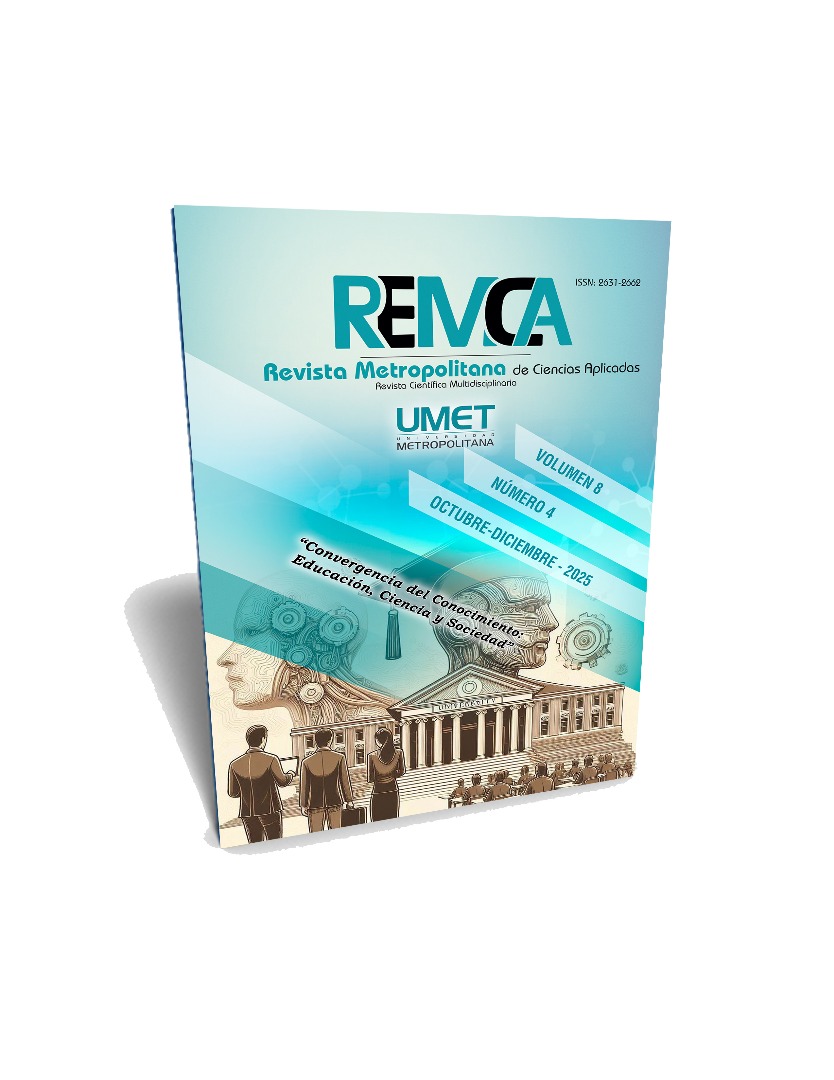Teaching practices for access to written culture in multi-grade groups
DOI:
https://doi.org/10.62452/352gza65Keywords:
Teaching practices, written culture, teaching resources, educational projects, multi-grade schoolAbstract
This research analyzes the importance of teaching practices for access to written in multi-grade primary education groups at the elementary level. In this context, the conditions and practices carried out by the teachers who serve these groups are decisive for the development of basic skills such as written lenguaje. The study was conducted in two groups of multi-grade primary schools in Villa Hidalgo, San Luis Potosí, México. Its purpose is to present the results of a methodological proposal that leads to strengthening teaching practices related to written culture. To this end, action research was used, employing qualitative tools such as observación, interviews, and teacher narratives. In the first phase, a diagnosis of teaching practices in multi-grade contexts was conducted, which served as the basis for implementing the second phase: a pedagogical intervention. This intervention consisted of a course-workshop for teachers to design and implement five writing projects in the selected groups, thus strengthening the approach to written culture in multi-grade groups. The results of the intervention phase show that it is possible to improve teaching practices in multi-grade settings through ongoing training and support. It is concluded that it is important to use teaching practices that integrate reading and writing, with diverse and contextualized resources, as well as active teacher intervention through support and mediation.
Downloads
References
Arteaga Martínez, P. (2009). Los saberes docentes de maestros en primaria con grupos multigrado. [Tesis de maestría, Departamento de Investigaciones Educativas del Cinvestav].
Arteaga Martínez, P., Popoca Ochoa, C., & Juárez Bolaños, D. (Eds.). (2021). La educación rural en México: Propuestas para una política educativa integral. Universidad Iberoamericana.
Barragán Vicaria, C., & Sánchez Rodríguez, S. (2012). Prácticas docentes, conocimiento de la lengua escrita y currículo. Investigación En La Escuela, (78), 81–93. https://doi.org/10.12795/IE.2012.i78.07
Boix Tomás, R. (1995). Estrategias didácticas de intervención en el aula rural. Graó.
Boix Tomás, R., & Buscà, F. (2020). Competencias del profesorado de la escuela rural catalana para abordar la dimensión territorial en el aula multigrado. REICE. Revista Iberoamericana Sobre Calidad, Eficacia Y Cambio En Educación, 18(2), 115-133. https://doi.org/10.15366/reice2020.18.2.006
Cassany, D. (1999). Construir la escritura. Paidós.
Cassany, D., & Luna, M. (2007). Enseñar lengua (7.ª ed.). Graó.
Castedo, M., Broitman, C., & Siede, I. (Comps.). (2021). Enseñar en la diversidad: Una investigación en escuelas plurigrado primaria (Estudios/Investigaciones 74). Universidad Nacional de La Plata.
Druker Ibáñez, S. D. (2021). Prácticas letradas y práctica docente: El lugar de la “escritura libre” en la producción de literacidad escolar con niñas y niños quechua. Perfiles Educativos, 43(171), 46–64. https://doi.org/10.22201/iisue.24486167e.2021.171.59584
Gallardo-Fernández, I. M., & Sánchez Rodríguez, S. (2022). Práctica docente y aprendizaje inicial de la lengua escrita. Enunciación, 27(1), 97–115. https://doi.org/10.14483/22486798.18795
Glaser, B., & Strauss, A. (1999). Discovery of grounded theory: Strategies for qualitative research (1st ed.). Routledge.
Juárez Bolaños, D. (Coord.). (2016). Educación rural: Experiencias y propuestas de mejora. Colofón; Universidad Autónoma de Sinaloa.
Kalman, J. (2003). El acceso a la cultura escrita: La participación social y la apropiación de conocimientos en eventos cotidianos de lectura y escritura. Revista Mexicana de Investigación Educativa, 8(17), 37–66. https://www.redalyc.org/pdf/140/14001704.pdf
Kalman, J. (2018). Leer y escribir en el mundo social: Obras escogidas de Judith Kalman. Paideia Latinoamericana.
Kauffman, A. M., & Wuthenau, C., & Marguery, M., Zaidenband, A., & Maidana, J. (2010). Leer y escribir: El día a día en las aulas. Aique.
Lerner, D. (2001). Leer y escribir en la escuela: Lo real, lo posible y lo necesario. Fondo de Cultura Económica.
México. Secretaría de Educación Pública. (2022). La Nueva Escuela Mexicana: Principios y orientaciones pedagógicas. SEP. https://dfa.edomex.gob.mx/sites/dfa.edomex.gob.mx/files/files/NEM%20principios%20y%20orientacio%C3%ADn%20pedago%C3%ADgica.pdf
Red Latinoamericana de Alfabetización. (2024). Alfabetizacao em Rede: Percursos trilhados na América Latina (Alfabetización en red. Caminos recorridos en América Latina) [Video]. YouTube. https://youtu.be/nAOYuMEG6NI
Rojas-Valladares, A. L., & Pire-Rojas, A. (2024). La relación escuela-familia. Nociones epistemológicas, sociológicas y pedagógicas sobre un desafío educativo. Editorial UMET.
Schmelkes, S., & Águila, G. (2019). La educación multigrado en México. Instituto Nacional para la Evaluación en la Educación (INEE).
Tolchinsky, L., Alba, C., & Rodríguez, M. (2007). Las prácticas docentes para enseñar a leer y escribir. Universitat de Barcelona – Ministerio de Educación y Ciencia.
Vygotsky, L. S. (2010). Pensamiento y lenguaje. Paidós.
Zhigue Luna, R. (Comp.). (2025). La educación en contextos rurales ecuatorianos. Algunas experiencias. Editorial Exced.
Downloads
Published
Issue
Section
License
Copyright (c) 2025 María Juana Noyola-Hernández (Autor/a)

This work is licensed under a Creative Commons Attribution-NonCommercial-ShareAlike 4.0 International License.
Authors who publish in Revista Metropolitana de Ciencias Aplicadas (REMCA), agree to the following terms:
1. Copyright
Authors retain unrestricted copyright to their work. Authors grant the journal the right of first publication. To this end, they assign the journal non-exclusive exploitation rights (reproduction, distribution, public communication, and transformation). Authors may enter into additional agreements for the non-exclusive distribution of the version of the work published in the journal, provided that acknowledgment of its initial publication in this journal is given.
© The authors.
2. License
The articles are published in the journal under the Creative Commons Attribution-NonCommercial-ShareAlike 4.0 International License (CC BY-NC-SA 4.0). The terms can be found at: https://creativecommons.org/licenses/by-nc-sa/4.0/deed.en
This license allows:
- Sharing: Copying and redistributing the material in any medium or format.
- Adapting: Remixing, transforming, and building upon the material.
Under the following terms:
- Attribution: You must give appropriate credit, provide a link to the license, and indicate if any changes were made. You may do this in any reasonable manner, but not in any way that suggests the licensor endorses or sponsors your use.
- NonCommercial: You may not use the material for commercial purposes.
- ShareAlike: If you remix, transform, or build upon the material, you must distribute your creation under the same license as the original work.
There are no additional restrictions. You may not apply legal terms or technological measures that legally restrict others from doing anything the license permits.




